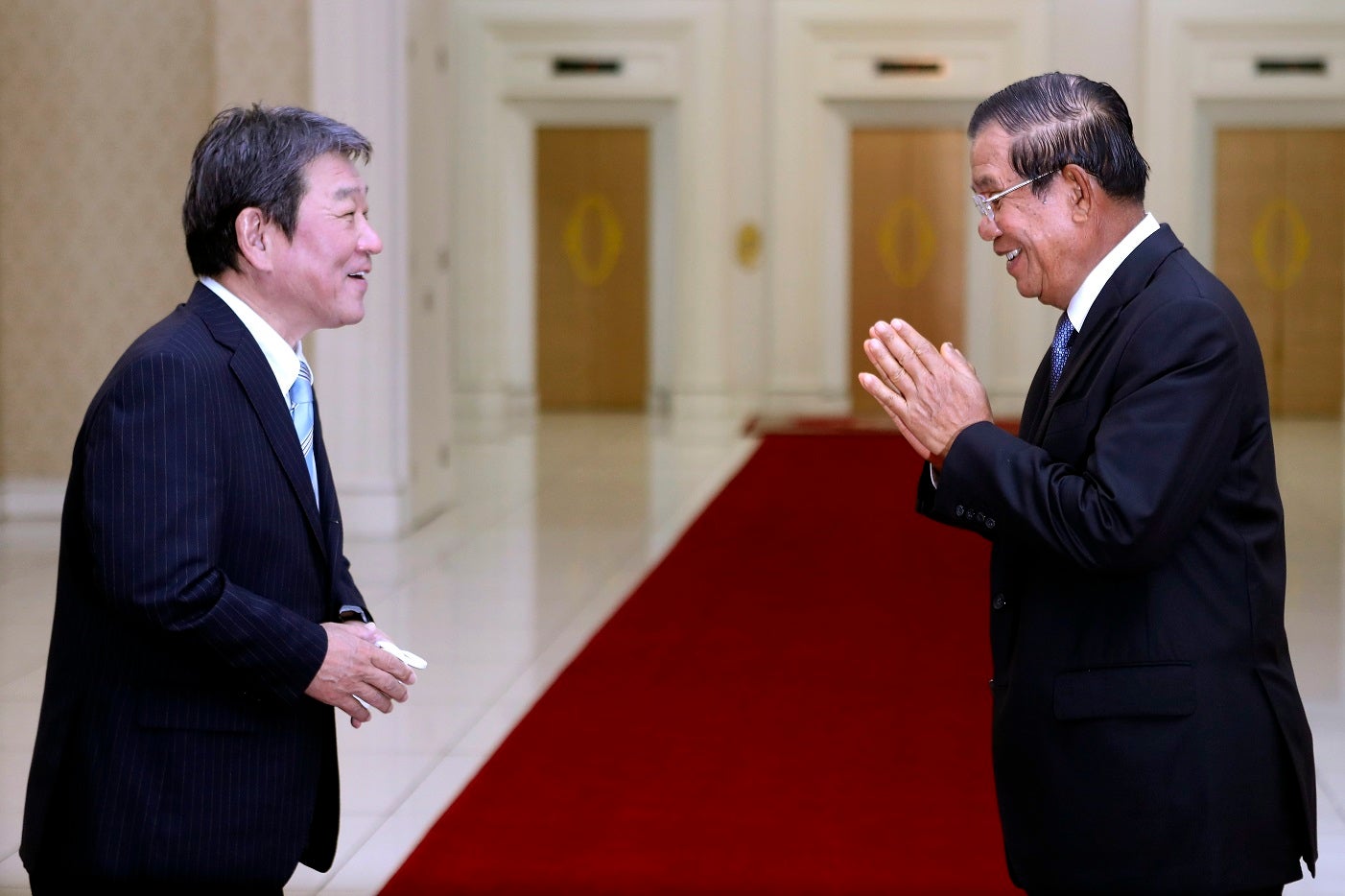
(Tokyo) – The Japanese government should immediately reverse its decision to support Cambodia’s notoriously abusive police force, Human Rights Watch said today.
On November 9, 2020, Japan’s Foreign Ministry announced a 300-million-yen grant (US$2.9 million) to Cambodia’s National Police to strengthen its counterterrorism capabilities. The ministry said funds will go toward the purchase of vehicles and other equipment aimed at protecting dignitaries, particularly ahead of the ASEAN Summit to be hosted by Cambodia in 2022.
“Japan is risking lives rather than protecting them by pouring taxpayers’ money into a Cambodian police force that for decades has brutally suppressed peaceful protesters, the political opposition, and critical journalists,” said Phil Robertson, deputy Asia director. “The Japanese government presumably doesn’t want to see the equipment they provided at the scene of future police crackdowns.”
Cambodia’s counterterrorism efforts have long been misused to target critics of the government and opposition political figures.
The Japanese Foreign Ministry, in a November 16 response to a Human Rights Watch inquiry about the new grant, declined to explain what it considers to be “counterterrorism,” but added vague phrasing that it “confirmed with the Cambodian government the aid be used and maintained ... in an effective and exclusionary manner.” The ministry noted that the Japanese embassy in Phnom Penh will monitor that the equipment is being used appropriately.
In a 2018 report, “Cambodia’s Dirty Dozen: A Long History of Rights Abuses by Hun Sen’s Generals,” Human Rights Watch documented over three decades of serious and systematic human rights violations by 12 high-ranking officials of Cambodia’s gendarmerie, police, and military, including the supreme commissioner of Cambodia’s National Police, Gen. Neth Savoeun, in support of Prime Minister Hun Sen’s decades-long rule.
Among the human rights abuses documented are the killings of hundreds of opposition figures, journalists, and trade union leaders, as well as arbitrary arrests, beatings, harassment, and intimidation of government critics including human rights defenders, labor unionists, environmental and land activists, and outspoken members of the public expressing their views online. Neither Neth Savoeun nor the other officials included in the “Dirty Dozen” have ever been held accountable for these abuses.
Police General Neth Savoeun rose through the ranks from head of the Phnom Penh police criminal bureau in the 1980s to head of the National Police. He routinely and arbitrarily arrested political opponents and other dissidents, and particularly during his early years, was regularly and directly involved in torture, in which he was infamous for his brutal interrogation techniques. He was also involved in political assassinations, kidnappings, and other acts of political violence targeting media, labor unionists, political opposition figures, and other Hun Sen critics in the 1990s. He served on a committee that oversaw the violent suppression of demonstrations protesting election fraud in the 1998 elections.
After being promoted to commander of the National Police in 2008, Neth Savoeun has continued to lead police crackdowns on protesters involved in disputes against illegal land seizures, labor strikes, and other public demonstrations. His forces were directly involved in efforts by Cambodia’s ruling Cambodian People’s Party (CPP) to fabricate the narrative of a “color revolution” and connect this to the opposition Cambodia National Rescue Party (CNRP), ultimately leading to the judicial dissolution of the party in November 2017, and the prosecution of its leader, Kem Sokha.
Despite an escalating police crackdown on dissent in Cambodia since 2017, the Japanese government has remained publicly silent on human rights, supported spurious national elections in 2018, and largely sidelined any concerns about persistent abuses on the grounds that it needed Cambodian government support to compete with China.
“Japan’s political compromises with the Cambodian government are coming at great cost to the rights of the Cambodian people,” Robertson said. “Funneling money to Cambodia’s abusive police force will only implicate Japan in the rights abuses the police commit going forward.”
"assistance" - Google News
December 11, 2020 at 01:00PM
https://ift.tt/33Z9zqD
Japan: End Assistance for Cambodia's Abusive Police - Human Rights Watch
"assistance" - Google News
https://ift.tt/2Ne4zX9
Shoes Man Tutorial
Pos News Update
Meme Update
Korean Entertainment News
Japan News Update
Bagikan Berita Ini














0 Response to "Japan: End Assistance for Cambodia's Abusive Police - Human Rights Watch"
Post a Comment